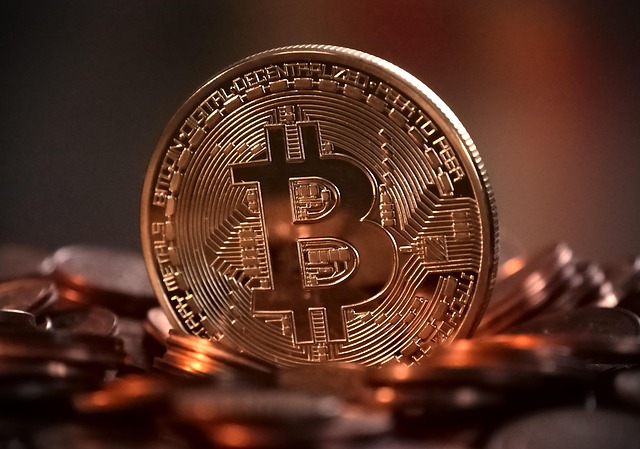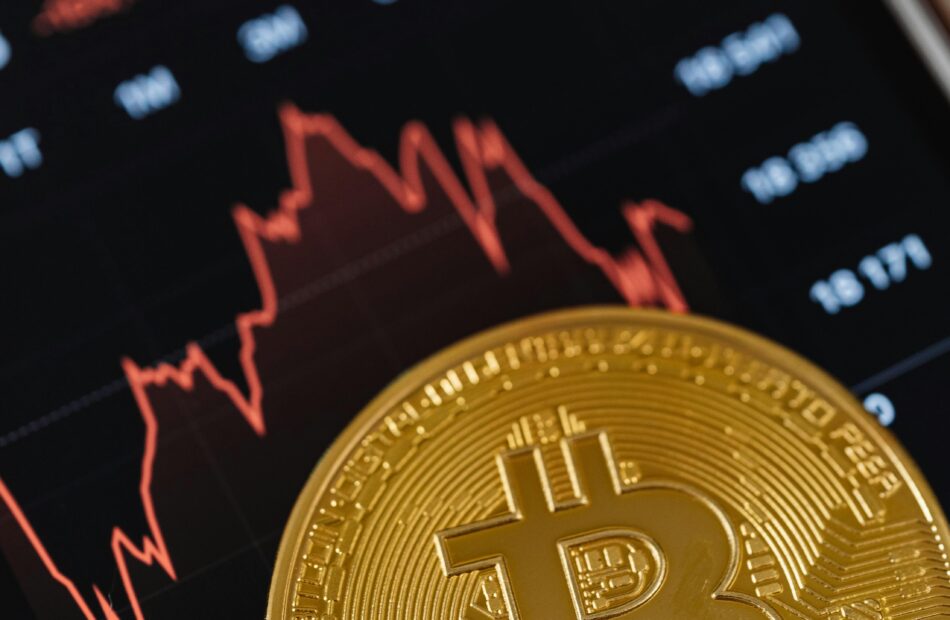Crypto needs policy change more than Bitcoin reserve — Execs
The cryptocurrency industry will benefit more from US regulatory clarity than from President Donald Trump’s plan to create a national Bitcoin (BTC) reserve, several cryptocurrency executives told Cointelegraph. Trump’s March 6 executive order creating a US strategic Bitcoin reserve and a separate digital asset stockpile for altcoins left crypto industry executives underwhelmed. Meanwhile, they are still waiting for the White House to provide detailed guidance on issues like securities regulation and taxation, the executives said. “Markets expect a roadmap for innovation and clear guidelines on stablecoins, institutional adoption and taxation,” Max Giammario, CEO of Web3 artificial intelligence startup Kindred, told Cointelegraph.“Instead, the vague rhetoric and lack of immediate action only deepened uncertainty.”Trump signed a crypto executive order on March 6. Source: Margo MartinRelated: Bitcoin reserve backlash signals unrealistic industry expectationsCampaign promisesIn July, Trump promised to turn America into the “world’s crypto capital” and create a US Bitcoin reserve akin to the nation’s gold stockpile. Trump’s March 6 executive order delivered on his campaign promise but left traders disappointed. Instead of instructing the US government to buy crypto, the reserve and the stockpile will initially only comprise digital assets seized by law enforcement. Bitcoin is down approximately 13% from March 6 as traders react to the news amid a backdrop of macroeconomic uncertainty. Altcoins have clocked similar losses, with the total crypto market capitalization shedding more than $400 million. Those losses could worsen without clearer US policy guidance soon, industry executives said.“If Trump’s administration provides clearer regulations on stablecoins, ETFs and institutional adoption, altcoins could regain momentum,” Alvin Kan, chief operating officer of Bitget Wallet, told Cointelegraph.“Otherwise, Bitcoin dominance may continue, as it remains the primary macro asset.”Reasons for optimismEven so, crypto industry executives remain optimistic, citing Trump’s pro-crypto rhetoric and his appointment of industry-friendly leaders to key US regulatory posts. “The future of US crypto policy under Trump […] remains to be seen,” Theodore Agranat, Gunzilla Games’ director of Web3, told Cointelegraph. “However, given the people in all the crucial positions, we should expect to see a stream of ongoing and positive initiatives and news for crypto in general and especially crypto projects in the US.”Magazine: Legal issues surround the FBI’s creation of fake crypto tokens
Bitcoin miner CleanSpark to join S&P SmallCap 600 Index
Bitcoin miner CleanSpark will join an important benchmark for US small-cap stocks, underscoring the company’s recent string of profitability despite industry volatility following the April 2024 halving. Beginning March 24, CleanSpark’s stock will be included in the S&P SmallCap 600 Index. As the name implies, the index measures the performance of small US companies that meet specific liquidity and stability criteria. As of March 2025, the index’s constituents must have a market capitalization of between $1.1 billion and $7.4 billion, maintain a public float of at least 10% of shares outstanding, and have positive trailing earnings for four consecutive quarters. CleanSpark CEO Zach Bradford said the company’s inclusion in the small-cap index demonstrates “the value of being a pure play, vertically integrated Bitcoin mining company,” which makes “exposure to our model more broadly available.”Source: CleanSparkCleanSpark’s profits surged to $241.7 million, or $0.85 per share, in the final quarter of 2024, up from just $25.9 million a year earlier. Company-wide revenues jumped 120% on a year-over-year basis to $162.3 million.In February, the company further bolstered its Bitcoin (BTC) stockpile by 6% and now holds 11,177 BTC on its books. Only four other publicly traded companies own more Bitcoin.Related: Monthly Bitcoin production drops as miners fight rising hashrateBTC miners under pressureBitcoin miners have seen their revenues decline since the April 2024 halving event, forcing several industry players to diversify their business models. Several are pivoting toward artificial intelligence data centers, which can generate higher revenue than traditional mining. In September, Hive Digital executives Frank Holmes and Aydin Kilic told Cointelegraph that repurposing Nvidia GPUs for AI tasks could generate up to $2.50 per hour in revenues, up from just 0.$12 per hour for crypto mining.For this reason, “institutions are much more interested in us with our AI than Bitcoin,” Holmes said.Bitcoin miners are increasingly turning toward AI applications to boost revenues. Source: VanEckOther mining companies are turning to mergers and acquisitions to reduce mining costs and increase hashrate, according to an August report by JPMorgan. The Wall Street bank singled out companies like Riot Platforms and CleanSaprk for increasing their M&A activity in the post-halving environment. Meanwhile, “Capital-constrained miners like IREN and [Cipher] focused on securing greenfield opportunities, which require less immediate capital,” JPMorgan said.Magazine: How Chinese traders and miners get around China’s crypto ban
Bitcoin nears $78K lows as US stocks dive at the Wall Street open
Bitcoin (BTC) sought a rematch with multimonth lows on March 10 as familiar selling accompanied the start of Wall Street trading.BTC/USD 1-hour chart. Source: Cointelegraph/TradingViewBTC price sags closer to new four-month lowsData from Cointelegraph Markets Pro and TradingView showed BTC/USD down around 4% on the day to reach $79,170 on Bitstamp.Weakness into the weekly close continued as risk assets across the board suffered a flight to safety.Stocks fell substantially at the open, with the S&P 500 and Nasdaq Composite Index down 2% and 3.5%, respectively.Reacting, trading resource The Kobeissi Letter said that US government spending cutbacks at the hands of the Department of Government Efficiency (DOGE) played a role in the slump.“While everyone is focused on the trade war, do not discount the impact of reduced government spending expectations,” it wrote in part of its latest analysis on X. “Government spending and job growth have been ‘fueling’ the economy. DOGE’s cuts will be felt.”S&P 500 1-day chart. Source: Cointelegraph/TradingViewKobeissi noted that crypto markets had erased $1 trillion in market cap in just two months.“The rally after the U.S. Strategic Reserve was announced has been completely erased,” it added on BTC/USD.Market participants’ views were mixed as it became unclear where BTC price action might put in a more reliable floor.Popular trader and analyst Rekt Capital advised X followers to look for rising relative strength index (RSI) values against lower prices for reversal cues.“Going forward, it’ll be worth watching for Bitcoin to form Lower Lows on the price action and Higher Lows on the RSI for a Bullish Divergence to develop,” he wrote about daily timeframes.BTC/USD 1-day chart with RSI data. Source: Rekt Capital/XA further post noted that the current bull cycle had produced bounces whenever the daily RSI was below 28. Specifically, “Bitcoin’s price would either bottom or be between -2% to -8% away from a bottom,” he explained. Daily RSI stood at 33.2 at the time of writing.BTC/USD 1-day chart with RSI data. Source: Rekt Capital/XBybit hack remains the elephant in the roomElsewhere, trading firm QCP Capital pinned the blame for the broader crypto market downside on sell-offs tied to last month’s hack of crypto exchange Bybit.Related: Biggest red weekly candle ever: 5 things to know in Bitcoin this week“Today’s price selloff may also be exacerbated by holders preemptively front-running further hacker-driven supply, now that the hackers have shown willingness to cash out rather than risk further losses — having already seen their stolen assets depreciate by 25%,” it wrote in its latest bulletin to Telegram channel subscribers. “In response, risk reversals have become even more bid for Puts over the past 24 hours, reflecting growing concerns over additional selling pressure.”QCP data showed market expectations becoming more optimistic only from Q3 onward.“Until crypto finds a new narrative, we’re likely to see an increased correlation between BTC and equities in the near term,” it concluded, referencing upcoming US macroeconomic data releases. “Both risk assets are currently trading near their recent lows, and with tariff risks still looming, volatility could pick up heading into key U.S. macro data releases — CPI (Wed) and PPI (Thu).”This article does not contain investment advice or recommendations. Every investment and trading move involves risk, and readers should conduct their own research when making a decision.
Unknown attacker causes headaches during Pectra upgrade on Sepolia
Ethereum, the second-largest cryptocurrency by market capitalization, has been making headlines recently with its Pectra test on the Sepolia fork. However, this highly anticipated test encountered a major issue that has caused quite a stir in the crypto community.
The Pectra test, which was meant to showcase the capabilities of Ethereum’s new Sepolia fork, was met with unexpected challenges when an unknown user started sending zero-token transfers. This caused a disruption in the network and led to delays and errors in the test.
The Sepolia fork is a major upgrade for Ethereum, aimed at improving the network’s scalability and efficiency. It is expected to bring significant improvements to the platform, making it more competitive with other blockchain networks.
However, the recent incident has raised concerns about the stability and security of the Sepolia fork. Many experts are questioning how such a critical issue could have been overlooked during the testing phase. Some even speculate that it could be a deliberate attack on the network.
The Ethereum team has been quick to respond to the situation, working tirelessly to identify and fix the issue. They have also assured users that steps are being taken to prevent similar incidents from occurring in the future.
Despite the setback, the Pectra test has still managed to showcase some of the impressive features of the Sepolia fork. This includes faster transaction processing times and lower fees, which are crucial for the widespread adoption of Ethereum.
The crypto community is eagerly awaiting the official launch of the Sepolia fork, hoping that it will bring significant improvements to the Ethereum network. However, this recent incident serves as a reminder that even the most advanced technologies are not immune to unexpected challenges. It also highlights the importance of thorough testing and security measures in the development of blockchain networks.
CZ urges Elon Musk to ban bots on the X social media platform
The rise of bots in the cryptocurrency world has been a growing concern for many users. These automated programs have been causing havoc by spamming, creating impersonation accounts, and sharing phishing links. As the popularity of cryptocurrencies continues to increase, so does the presence of these malicious bots.
One of the main issues with bots is their ability to impersonate legitimate accounts. This can be especially problematic on social media platforms, where users often rely on the credibility of accounts to make informed decisions. Bots can easily mimic the profile picture, username, and even the bio of a real user, making it difficult to distinguish between a genuine account and a fake one. This can lead to users unknowingly interacting with bots and falling victim to their scams.
Another major concern is the use of bots for spamming. These automated programs can flood social media feeds and comment sections with irrelevant or misleading information, making it difficult for users to find genuine and valuable content. This not only creates a negative user experience but also makes it challenging for legitimate businesses and projects to reach their target audience.
Phishing links are also a common tactic used by bots to deceive users. These links often lead to fake websites that mimic legitimate ones, tricking users into giving away their personal information or even their cryptocurrency holdings. With the increasing value of cryptocurrencies, these scams have become more lucrative for bots, making them a significant threat to the security of users.
As the use of bots continues to evolve and become more sophisticated, it is crucial for users to stay vigilant and take necessary precautions. This includes verifying the authenticity of accounts, being cautious of suspicious links, and reporting any suspicious activity. By working together, we can combat the issue of bots and create a safer and more trustworthy environment within the cryptosphere.
Bitcoin reserve backlash signals unrealistic industry expectations
The concept of a government-backed BTC Reserve was once considered a radical and groundbreaking idea. However, as the world of cryptocurrency continues to evolve and gain mainstream acceptance, this notion is becoming more and more plausible.
In fact, according to a blockchain regulatory expert interviewed by Cointelegraph, the idea of a BTC Reserve supported by a federal government was once seen as a far-fetched and unlikely possibility. But as the value and potential of Bitcoin and other cryptocurrencies become increasingly recognized, governments are starting to take notice and explore the potential benefits of holding a reserve of digital assets.
This shift in perception is a testament to the growing influence and impact of cryptocurrency on the global economy. With its decentralized nature and secure blockchain technology, Bitcoin has proven to be a viable alternative to traditional fiat currencies. As a result, governments are beginning to see the potential of incorporating digital assets into their financial strategies.
One of the main advantages of a government-backed BTC Reserve is the potential for stability and security. By holding a reserve of Bitcoin, governments can diversify their assets and protect against inflation and economic instability. This could also lead to increased adoption and legitimacy of cryptocurrency, as governments themselves become investors and supporters of the digital currency.
Of course, there are still many challenges and obstacles to overcome before a government-backed BTC Reserve becomes a reality. Regulatory frameworks and policies need to be established, and there are concerns about the volatility and security of cryptocurrency. However, the fact that this idea is even being considered by governments is a clear indication of the growing influence and potential of Bitcoin and other digital assets.
In conclusion, the concept of a government-backed BTC Reserve may have once been seen as a radical idea, but it is now becoming a more realistic and feasible possibility. As the world of cryptocurrency continues to evolve and gain mainstream acceptance, we may see more and more governments embracing and incorporating digital assets into their financial strategies.
El Salvador acquired over 13 BTC since March 1, despite IMF deal
El Salvador’s President Nayib Bukele has been making waves in the cryptocurrency world with his bold decision to adopt Bitcoin as legal tender in the country. Despite facing criticism and pushback from international organizations and financial institutions, Bukele remains steadfast in his belief that Bitcoin is the future of money.
In a recent move, Bukele announced that the country had purchased an additional 150 Bitcoins, bringing their total holdings to 550 Bitcoins. This decision has been met with both praise and skepticism, with some applauding Bukele’s forward-thinking approach and others questioning the potential risks and volatility of investing in a digital currency.
However, Bukele shows no signs of wavering in his BTC treasury strategy. In fact, he has been actively promoting Bitcoin and encouraging other countries to follow in El Salvador’s footsteps. Bukele believes that adopting Bitcoin will bring financial freedom and economic growth to the country, as well as attract foreign investment and boost tourism.
Despite facing challenges and criticism, Bukele’s decision to embrace Bitcoin has gained international legitimacy. The International Monetary Fund (IMF) recently stated that El Salvador’s decision to adopt Bitcoin as legal tender is a “step towards macroeconomic stability.” This recognition from a major global organization is a significant win for Bukele and his BTC treasury strategy.
Moreover, Bukele’s move has sparked a global conversation about the role of cryptocurrency in the future of finance. Many countries are now considering following in El Salvador’s footsteps, with some even exploring the possibility of creating their own digital currencies.
As Bitcoin continues to gain mainstream acceptance and legitimacy, Bukele’s decision to adopt it as legal tender may prove to be a game-changer for the cryptocurrency world. Only time will tell if Bukele’s bold move will pay off, but for now, he remains confident in his decision and continues to champion Bitcoin as the currency of the future.
Nigeria’s new crypto tax policies may not drive the revenue it needs
Nigeria, a country facing economic struggles, is taking a bold step towards embracing the digital economy by introducing a tax on cryptocurrency transactions. This move by the government is seen as a way to tap into the potential of the growing digital market and the informal sector.
Cryptocurrency, a form of digital currency that operates independently of a central bank, has gained popularity in recent years. It offers a decentralized and secure way of conducting financial transactions, making it an attractive option for many Nigerians. However, the lack of regulation and taxation on these transactions has raised concerns for the government.
With the new tax, the Nigerian government aims to generate revenue from the growing cryptocurrency market and bring the informal sector into the tax net. This sector, which includes small businesses and self-employed individuals, has largely been untaxed, resulting in a significant loss of potential revenue for the government.
The move has been met with mixed reactions from the public. Some see it as a positive step towards regulating the cryptocurrency market and boosting the economy, while others view it as a burden on already struggling citizens. However, experts believe that with proper implementation and enforcement, the tax could bring in much-needed revenue for the government and help stimulate economic growth.
This development also highlights the increasing importance of the digital economy in Nigeria. With a large population and a high rate of internet penetration, the country has the potential to become a major player in the global digital market. By embracing and regulating cryptocurrency, the government is taking a step towards harnessing this potential and positioning Nigeria as a leader in the digital space.
In conclusion, the introduction of a tax on cryptocurrency transactions in Nigeria is a significant move that reflects the country’s efforts to adapt to the changing economic landscape. While it may face some challenges, it has the potential to bring in revenue, regulate the digital market, and drive economic growth.
How to utilize AI agents in decentralized finance (DeFi) platforms
Decentralized finance (DeFi) has been gaining traction in the financial world, offering a new way of managing and accessing financial services without the need for intermediaries. However, as with any emerging technology, there are still challenges to be addressed in order to fully realize its potential. This is where artificial intelligence (AI) comes in.
AI agents have the ability to enhance DeFi in various ways, making it more efficient and innovative. One of the key areas where AI can make a significant impact is automation. With the help of AI, DeFi protocols can automate various processes, such as lending and borrowing, without the need for human intervention. This not only saves time and resources but also reduces the risk of human error.
Moreover, AI agents can also improve risk management in DeFi. By analyzing vast amounts of data and identifying patterns, AI can help DeFi platforms make more informed decisions and mitigate potential risks. This is especially crucial in the highly volatile world of cryptocurrency, where market conditions can change rapidly.
In addition, AI can also enhance trading strategies in DeFi. By continuously monitoring market trends and analyzing data, AI agents can identify profitable trading opportunities and execute trades at lightning speed. This can lead to higher returns for investors and traders in the DeFi space.
Furthermore, AI can also play a role in improving user experience in DeFi. With the help of AI-powered chatbots, users can easily navigate through DeFi platforms and get real-time assistance with their transactions. This not only makes the process more user-friendly but also increases accessibility for those who may not be familiar with DeFi.
Overall, the integration of AI in DeFi has the potential to drive efficiency and innovation in the space. As the technology continues to evolve, we can expect to see even more advancements and improvements in the DeFi ecosystem. With AI agents by its side, DeFi is poised to revolutionize the traditional financial system and offer a more decentralized and inclusive approach to finance.
Coinbase to add 1,000 more US jobs in 2025, thanks to Trump — Brian Armstrong
Following the recent White House Crypto Summit, Coinbase CEO Brian Armstrong has made an exciting announcement for the future of the popular cryptocurrency exchange. In a move that is sure to shake up the industry, Armstrong revealed that Coinbase will be embarking on a major hiring spree in the United States.
This news comes as no surprise, as the White House Crypto Summit was a pivotal event for the crypto community. With top leaders and influencers in attendance, the summit served as a platform for discussing the future of cryptocurrency and its potential impact on the global economy. As one of the leading exchanges in the market, Coinbase’s participation in the summit was highly anticipated.
But it was Armstrong’s announcement that stole the show. In a statement, he declared that Coinbase will be expanding its team in the United States, with a focus on hiring top talent in various fields such as engineering, design, and compliance. This move is a clear indication of Coinbase’s commitment to growth and innovation, as well as its belief in the potential of cryptocurrency to revolutionize the financial landscape.
The decision to ramp up hiring in the US is a strategic one for Coinbase. With the country being a major hub for tech and finance, it presents a prime opportunity for the exchange to tap into a pool of highly skilled and experienced professionals. This move will not only benefit Coinbase but also contribute to the growth of the overall crypto industry in the US.
As the crypto market continues to gain mainstream acceptance and adoption, Coinbase’s expansion plans are a testament to the growing demand for cryptocurrency services. With a strong and dedicated team, the exchange is well-positioned to lead the way in shaping the future of finance.
In conclusion, Coinbase’s announcement of a hiring spree in the US is a significant development for the company and the crypto industry as a whole. It is a clear indication of the exchange’s commitment to growth and innovation, and a promising sign for the future of cryptocurrency.










